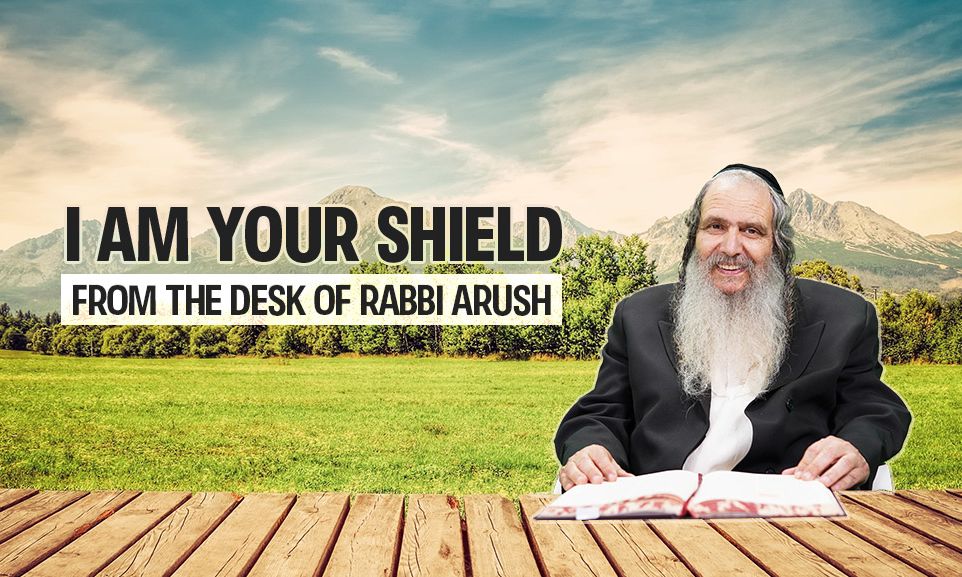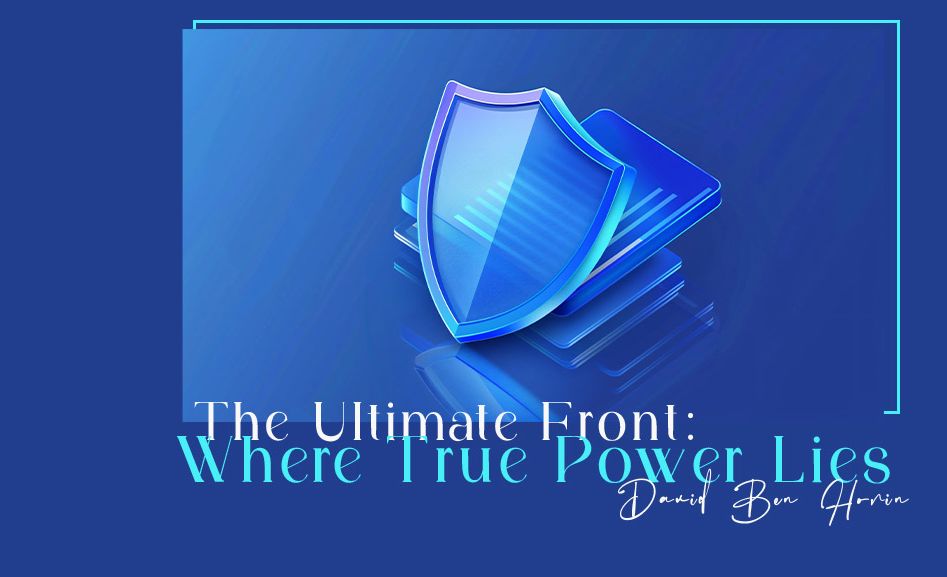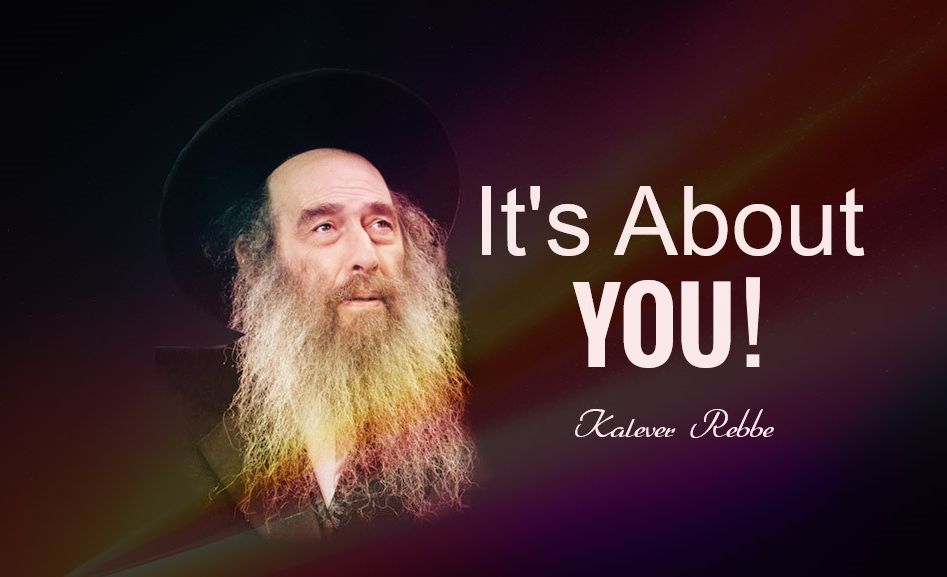
I Am Your Shield
We are in the midst of charon af (divine fury) in the world. What concrete steps can we take to regain a sense of safety and protection in Hashem?

Translated from Rabbi Arush’s feature article in the weekly Chut shel Chessed newsletter. The articles focus on his main message: “Loving others as yourself”, emuna, and redemption.
Heavenly Protection
Dear Jews, my beloved brothers and sisters, we all see that this is a time of charon af (divine fury) in the world; may Hashem have mercy on us, so that we will not hear of any more terrible happenings. Our sages instruct us that during difficult times like these, times of danger, in which the Satan may criticize us, we must be more careful than usual, because once permission is granted to the destroyer to kill, it does not distinguish between the innocent and the guilty.
And yet, Chazal say that we should increase our mitzvot and spiritual actions that bring upon us protection, such as tzitzit and mezuzah and observing Shabbat and saying Tehillim and trusting in Hashem. Many ask what we should be improving to bring upon ourselves and all our Jewish brethren the spiritual protection that all of us so wish for and need; the answer is to raise our eyes to the mountains, to the words of Rabbi Nachman of Breslev, who relates to this question in Likutei Moharan, Torah 31.
In the times of Chazal – and to a certain extent in our times as well – the greatest times of danger are when traveling, because “All the roads are considered dangerous” and “the Satan criticizes in times of danger,” as Yosef said to his brothers: “Do not quarrel on the way.” In this teaching, Rabbeinu speaks of the dangers of traveling, and mentions a few things that protect one from these dangers. These are true, as mentioned, for all dangers, and are very necessary for our times.
Number one: Shmirat habrit and tzniut
It says in Psalm 144:14: “…There is neither peretz (breach), nor outburst, nor wailing in our streets.” When there is no pritzut (immoral behavior), there is no wailing, and the wailing is all those sirens and alerts, and cries of distress over what we are going through.
Tzniut (modesty) and kedusha (holiness) are even more necessary at wartime. The Torah in Devarim 23:15 gives a special warning on the importance of kedusha and taharah (purity) in a Jewish camp: “Your camp should be holy, so that He will not see any indecent thing among you and turn away from you.” Our victories are only in the merit of Hashem Who “travels with your camp to protect you and to deliver your enemies to you.”
Every man and woman, young and old, who take upon themselves good resolutions in the matter of shmirat habrit and tzniut and kedusha, bring upon themselves a shield and a protection for themselves for the entire Jewish people. The main thing is to take upon ourselves to pray every day for kedusha.
Number two: Emuna (faith)
Emuna is the purpose of the world. Rabbeinu emphasizes here and in other places that all the corruption of the world and all the charon af – they all start from a flaw in emuna, and therefore emuna is the perfect correction and sweetening of the dinim (harsh decrees) – and so it serves as a protection from all criticism.
The complete emuna is the belief that Hashem loves you; every Jew should believe that Hashem loves him or her. The perfect emuna is that everyone should believe they are in Hashem’s hands and that nothing bad will happen to them.
Only with this emuna can one live a life saturated with emuna.
What is a life of emuna? It is a life in which the person is in constant contact with the Creator – constant: gratitude and tefilla (prayer), as the Mishna says: “Give thanks on the past and cry out for the future to come.” He gives thanks at every step; for every small kindness he says thank you – and immediately prays for the future and for the entire Jewish nation.
We see this in our parashat Lech Lecha, in Avraham Avinu, who thanks and prays in all his travels. Hashem reveals Himself to him and tells him that the land of Canaan will be given to Avraham’s descendants. Immediately, Avraham builds an altar and thanks Hashem for the revelation of the Shechina that he experienced, and for the good news! He arrives in Beit El and builds an altar to pray for the Jewish People there, because he sees that many generations later, they are going to suffer from the sin of Achan.
So, we see that all those altars that Avraham built were altars of gratitude and of prayer. And there are many more examples in all the parshiot dealing with Avraham Avinu, who was the first believer. From this we see that all he wanted to do was thank Hashem for all the chessed that He did to him, and to pray not only for himself but for all future generations. This is what a life of emuna looks like.
In addition, the commentators say that Avraham’s calling out Hashem’s name at the altars can be understood also as dissemination of emuna to all nations, as Chazal teach us that Avraham taught the whole world to thank Hashem yitbarach, and he converted a great many gentiles.
Number three: Tzedakah (charity)
Tzedakah is a segula (an auspicious deed) for everything good. “And tzedakah saves from death,” said the wisest of all men in the book of Mishlei (Proverbs 10:2). “And teshuva and tefilla and tzedakah remove the bad decree,” say our holy sages. In the paragraph from Tikkunei Hazohar said before Kol Nidrei, it says: “There are those who pay in money and there are those who pay with their souls.” In other words, when it is decreed that a person must pay his debt to Heaven, it is worthwhile for him to pay in money – to give tzedakah – rather than pay in some other way, chalila.
Fortunate are we to see the Jewish people doing everything they can to give to and help the soldiers, the residents of the southern region, and the injured and their families. And then there is the indescribable chessed of all those hundreds of thousands of soldiers, who are doing chessed with their very bodies and souls, leaving their families and their jobs and going to shield and protect all their fellow Jews.
There is no doubt that the merit of this tremendous chessed that is being done amongst all Jews, the unity of hearts and the increase of love are shaking the gates of Heaven, and are preparing the way for our prayers, together with the prayers of all generations, to go up to Heaven and to bring about the complete geulah (salvation) with mercy, here and now.
Included in tzedakah is the distribution of booklets and books of emuna, because the main lack in life is that of daat (knowledge), for “If you have daat, what do you lack?”. We are coping with a difficult situation, and holy faith is the main thing that gives us the power to cope, the daat from which all consolation comes, and the strength to continue forward despite everything.
Rabbi Nachman says an amazing thing: when a person achieves daat and goes from katnut mochin (small-mindedness) to gadlut mochin (big-mindedness), the dinim are sweetened and chessed and rachamim (mercy) come down! And that is why the passuk says: “Happy are those who give thought to the weak” (in other words, when one gives daat to a person whose daat is weak) – “May Hashem spare them in times of misery.” Hashem will save all of us from the evil that has come upon us.
Number four: Kisufin tovim (good yearnings)
There is a psalm in Tehillim that is very auspicious for protection when traveling and at any time of troubles; indeed, it is called by Chazal, “A Song of Misfortunes.” It is psalm 91, which begins “Yoshev beseter… He who lives in the shelter of the Most High…” The entire psalm speaks of a wonderful and supreme protection, and a complete and final vanquishing of all our enemies, our haters and those who wish us ill. Needless to say, this is the time to say more Tehillim than usual in general, and especially psalms of faith and trust, like this psalm, which is all about protection.
At the end of this psalm, David Hamelech says: “Because he loves me, I will rescue him, I will protect him because he acknowledges My name.” Rabbi Natan says in the holy book, Likutei Halachot, according to the holy Zohar, that the secret of supreme protection appears in this passuk: The yearning and desire for holiness! Holy desires!
And this, of course, includes the entire book of Tehillim, the content of which is yearning for Hashem and His Torah, and it includes the prayers and hitbodedut of anyone who wishes to live according to Hashem’s will. David Hamelech was the greatest of those who prayed to Hashem and yearned for Him; he said, “I am prayer” (Psalm 109:4), and in that merit was the greatest of the warriors and protectors of the Jewish People in face of all those who wished to harm them.
Dear Jews, we are all in this together, and Hashem is with us in our trouble, as it says, “I am with him in the trouble”. Praiseworthy is the person who thinks of the problems of the Jewish people and does whatever he can – materially and spiritually – to aid them, protect them, save them and redeem them.
May Hashem watch over all of us, and may we see great salvations, with mercy, soon.








Tell us what you think!
Thank you for your comment!
It will be published after approval by the Editor.